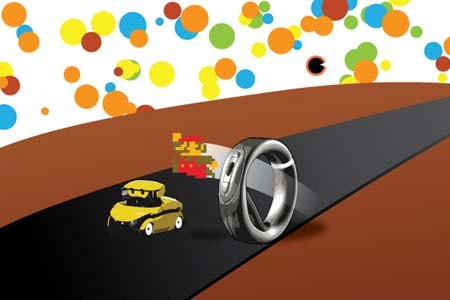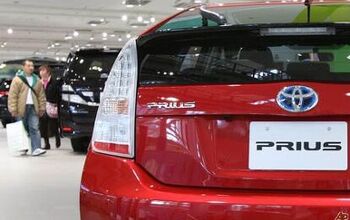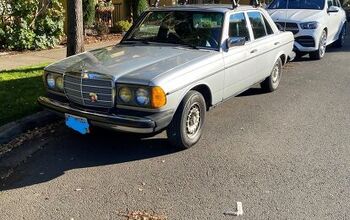Japanese November Car Sales: Up 44 Percent? Or 36 Percent? Or 18 Percent?

If you are a daily reader of the Nikkei, as we are in the Schmitto-san household, you can sometimes lose your confidence in Japanese precision and accuracy.
Yesterday, we quoted the Nikkei as saying that “sales of new cars and trucks rose 36 percent year on year to 293,410 units in November, marking the fourth straight month of increase, the Japan Automobile Dealers Association said Tuesday. Passenger car sales surged 43.8 percent to 268,450 units.”
Today, we read in the Nikkei that “new-vehicle sales increased 18.3 percent to 436,535 units in November for a third straight year-on-year gain, according to industry data released Tuesday.”
Shitsurei?
Sumimasen?
Shitsureishimashita?
WTF?
After a lot of head scratching and frantic (“mooshi-mooshi, Schmitto des”) phonecalls to Tokyo, we found out that we were fooled by the fine nuances between “vehicle” and “registered vehicle.” And by a fading Nipponese fad called the “kei” car, or the minivehicle.
Minivehicles are classified as everything propelled (if you can call it that) by an engine with the displacement slightly larger than a beer bottle: 660 cubic centimeters (40.27 ci.) The “car” may not measure more than 133.8 inches in length and 58.3 inches in width. Neither the Smart ForTwo nor the Mini Cooper would qualify as a minivehicle under Japanese law. Those kawaii little critters and the bigger bore conveyances (called “registered vehicles”) taken together make up the total “vehicle” count. Makes your head spin, doesn’t it?
Anyway, here are the final numbers:
Japan in November saw 293,410 “registered vehicles,” up 36 percent. Trucks were down 10.7 percent. “Real” passenger cars were up 43 percent. The pesky little minivehicles are down 6.5 percent to 143,125 sold in November. This is the 13th month that the “kei” cars are losing. Which restores our confidence in the Nipponese market. But which also makes the Japanese numbers look bad unless one recognizes the fine nuances between “minivehicle”, “registered vehicle”, and “vehicle.” The Japanese are big on nuances. Down to the smallest vehicles.

Bertel Schmitt comes back to journalism after taking a 35 year break in advertising and marketing. He ran and owned advertising agencies in Duesseldorf, Germany, and New York City. Volkswagen A.G. was Bertel's most important corporate account. Schmitt's advertising and marketing career touched many corners of the industry with a special focus on automotive products and services. Since 2004, he lives in Japan and China with his wife <a href="http://www.tomokoandbertel.com"> Tomoko </a>. Bertel Schmitt is a founding board member of the <a href="http://www.offshoresuperseries.com"> Offshore Super Series </a>, an American offshore powerboat racing organization. He is co-owner of the racing team Typhoon.
More by Bertel Schmitt
Latest Car Reviews
Read moreLatest Product Reviews
Read moreRecent Comments
- Jkross22 When I think about products that I buy that are of the highest quality or are of great value, I have no idea if they are made as a whole or in parts by unionized employees. As a customer, that's really all I care about. When I think about services I receive from unionized and non-unionized employees, it varies from C- to F levels of service. Will unionizing make the cars better or worse?
- Namesakeone I think it's the age old conundrum: Every company (or industry) wants every other one to pay its workers well; well-paid workers make great customers. But nobody wants to pay their own workers well; that would eat into profits. So instead of what Henry Ford (the first) did over a century ago, we will have a lot of companies copying Nike in the 1980s: third-world employees (with a few highly-paid celebrity athlete endorsers) selling overpriced products to upper-middle-class Americans (with a few urban street youths willing to literally kill for that product), until there are no more upper-middle-class Americans left.
- ToolGuy I was challenged by Tim's incisive opinion, but thankfully Jeff's multiple vanilla truisms have set me straight. Or something. 😉
- ChristianWimmer The body kit modifications ruined it for me.
- ToolGuy "I have my stance -- I won't prejudice the commentariat by sharing it."• Like Tim, I have my opinion and it is perfect and above reproach (as long as I keep it to myself). I would hate to share it with the world and risk having someone critique it. LOL.


































Comments
Join the conversation
T2: As a Bavarian, I only compare with 0.5 Liter bottles. Which is half of the standard unit I grew up with: the 1 Liter stein.
Kei car sales may be down, but the number is still impressively large. 143k Kei cars vs. 269k for all other passenger car types combined implies an impressive 35% market share of passenger cars for the Kei cars. But then, are Kei sized micro-trucks included in the Kei car numbers? Ouch, my head hurts.